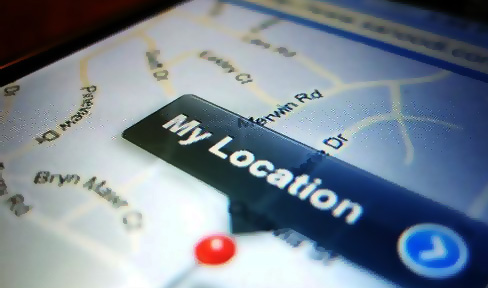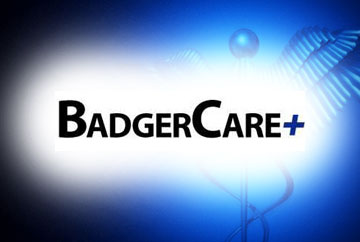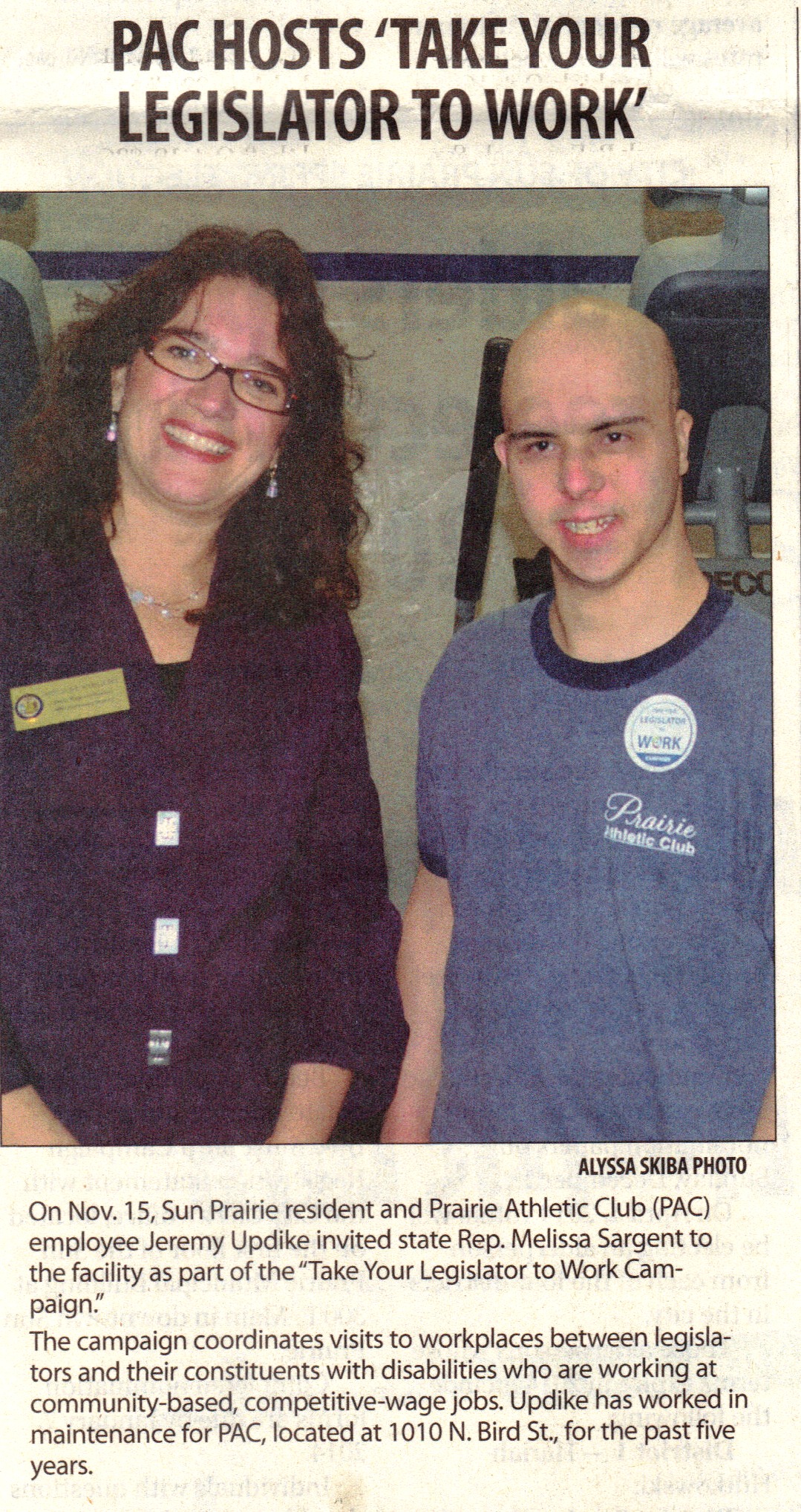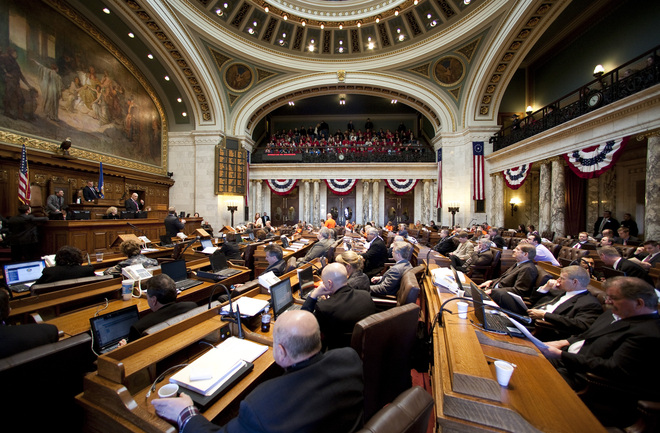
To view a plain text version of this e-update click here
Friends and Neighbors,
As we enter Thanksgiving week, I like to stop and take stock of all the things that we have to be thankful for. As your state representative, I am fortunate to live in the state I love and grew up in. I'm also thankful that I get to work each day to provide a better future for our community and for all Wisconsinites.
This week, I encourage everyone to slow down and enjoy time with your families, and to cherish the traditions that create memories for generations to come. We all love eating a big Thanksgiving dinner and watching the Packers, but make sure to also take a moment to have a great conversation with your family and friends and enjoy the quality
 time with them.
time with them.Finally, let me say that I am thankful for all of my constituents who it is such an honor to represent. Know that I do not take one day for granted, and that I will always stand up for what I believe to be the right path forward for our state.
Sincerely,

Last Day of Session Brings Extreme Agenda to the Floor
|
On the last day of regular session
of the Wisconsin Legislature for 2013, the GOP continued
to tread on the people of Wisconsin. |
|
Instead, there was an extensive 13-hour
calendar filled with extreme and divisive bills as well as a
true lack of respect and decorum for the people and the process.
The session went late into the night and early the next day. We
all know nothing good happens for the people of our State when
this legislature meets after midnight.
RECALLS: First, there were two bills which changed the way in
which recall elections will operate. Under these bills, only
under instances of felonies or ethics violations would the
public be able to recall their elected officials. I believe that
both state and local leaders should be held accountable to the
people who elect them, and that if the community we represent
wishes to attempt to make a change through a recall election
because they were lied to, it is their right to do so.
VOTER ID: The Assembly GOP also passed a new voter ID bill that
modifies the controversial 2011 voter ID law which is currently
before the courts. This is a bill in search of a nonexistent
problem. All of this in an effort to increase its chance of
surviving a new court challenge. This creates more red tape,
doesn't protect the sanctity of your vote and challenges a
fundamental right in our country - the right of one person one
vote. Under this new bill, voters would only be able to cast a
ballot without ID if they signed an affidavit swearing that they
are too poor to afford ID or had no way of gaining access to
their birth certificate. This is anti-democratic and an abuse of
power.
ACCESS TO YOUR BALLOT: The GOP majority voted to limit our local
clerks’ office hours to 40 hours per week only on weekdays and
also eliminate weekend ballot access. This bill will make our
elected clerks jobs more difficult; will make our voting lines
longer and likely decrease voter turnout across our state. We
know that by again overriding local control and mandating fewer
absentee voting hours, they are not allowing our communities the
ability to address their differing voter needs. This is yet
another blatant voter suppression tactic.
SUPREME COURT: Finally, we voted on
a Constitutional Amendment which will change the process used to
choose the Chief Justice of the Wisconsin Supreme Court. The
resolution, which also passed on a party line vote, changes the
100 year old system entirely. Historically, the Chief Justice is
chosen by seniority, but this new legislation would have the
court members vote on who they want to be the Chief Justice.
Considering the conservative majority on our court, this is yet
another power grab by the Republicans to gain power over the
Supreme Court as well as the Governor’s office and State
Legislature. The insertion of politics into our supposed
nonpartisan courts is extremely concerning. Rather than helping
the people of Wisconsin and creating jobs we continue to see GOP
bills that are blatant attempts to silence the voices of the
majority of the people of Wisconsin.
Redistricting Reform Rejected by the GOP
Despite the fact that there is a ground
swell of support for our common-sense legislation across the
state, once again the people of Wisconsin were not heard by the
GOP and partisan gridlock won out.
Wisconsin currently uses a legislative redistricting process,
where the maps are drawn up by the majority parties in the
Legislature, are voted on by the Senate and Assembly, and are
then signed by the governor. If the Legislature cannot agree on
a redistricting plan, as is usually the case with split houses,
the Supreme Court steps in to finalize the new legislative
districts. For the past 50 years, Wisconsin's elected officials
have had to work together with bipartisan cooperation or leave
the task of redistricting up to the courts. This was the first
time in 60 years that one political party had complete control
over the redistricting process, causing Wisconsin to seriously
consider if its current process is best for Wisconsin's
democracy.
The bill we pulled to the floor for a vote by the Assembly would
have replaced the current process and instead create a
nonpartisan commission to draw new legislative and congressional
lines after each Census. Unfortunately, despite the maps being
criticized for being drawn in secret and to gain a political
advantage by newspaper editorials across the state, costing
taxpayers $2.1 million to defend them in court, and growing
support for a new system, Assembly Republicans rejected the
bill. As a result, Republican legislators will continue to have
the power to pick their voters in order to save their jobs.
I know that with fair and transparent redistricting, the extreme
Tea Party bills that are moving through Wisconsin that are
attacking voting rights, workers’ rights, women's rights, the
environment, and so much more; would not be happening.
I know that the real problem in Wisconsin is not that too many
people are voting – it is that too few people are working. I'm
not here because it's easy and I know there is a long road ahead
but I pledge to work tirelessly, with each of you at my side, to
rebuild Wisconsin's economy, to advocate for our hard-working
families, and to bring decorum back to our statehouse.
Redistricting reform could begin to heal the divide we face in
our state, and to move us once again, forward.
Cell Phone Privacy Bill
Introduced
 |
I was pleased to reach across the
aisle to work with Representative Rob Hutton
(R-Brookfield) on a bill that will protect our citizens'
privacy in relation to their cell phones and location
data. |
The cellphones we carry
everywhere establish a clear log of our daily travels and can go
a long way in telling the story of our lives. This information
can be sensitive in nature and should be treated as such.
This bill (LRB 2077) requires law enforcement to get a search
warrant for location information recorded by an electronic
device. The law doesn't just cover cell phone metadata, but
requires that law enforcement get a probable-cause warrant for
tracking a suspect in a criminal investigation by social
networking check-ins, or via a GPS tracking device.
LRB 2077 follows the lead of the U.S. Supreme Court, which
recently ruled that it was unconstitutional for police to
install a GPS device on someone’s car without a warrant. But GPS
vehicle tracking isn’t the only way to collect details on where
you are and when. Our cell phones create a location data trail
throughout the day as they ping nearby cell towers. Many other
devices – like tablets – do the same, while mobile apps and
other tools can collect even more detailed location information.
This data is a powerful tool for law enforcement, and should be
available to police when it’s appropriate. But this information
is extraordinarily sensitive, revealing things like your place
of worship, if you are visiting a medical clinic, and who you
visit and meet with.
New data shows that law enforcement agencies across the country
are collecting location data without a warrant or any court
approval. This bill will protect our citizen’s privacy and
ensure that police have a standard protocol state-wide for
obtaining this information.
There are exemptions in the bill due to time sensitive cases
including:
• An emergency involving danger, death or serious physical
injury to any person exists.
• The communication device is reported stolen by the owner.
This bill has already received bi-partisan support and it is my
hope that it will pass through the Assembly and Senate during
the January floor period.
Gov. Walker denies Health Care Coverage to 80,000 low-income
Wisconsin citizens
|
Late last week Gov. Walker gave
into intense public pressure and delayed kicking over
77,000 people off BadgerCare for 3 months. |
 |
Shockingly, it turns out Gov. Walker funds
his delay in BadgerCare cuts by denying health care coverage to
80,000 of the lowest income Wisconsinites for three months.
Gov. Walker expects us to believe that the best way to maintain
coverage for 77,000 people who he should never have cut from
BadgerCare in the first place is to deny health coverage to
80,000 people.
It’s wrong to fund health coverage for one group of
Wisconsinites by denying it to another. Three months without
health insurance is just too big a risk to ask 80,000 of
Wisconsin’s most vulnerable citizens to endure.
This is a clear and direct result of his refusal to take
enhanced federal BadgerCare dollars provided by the Affordable
Care Act. Under the ACA, from 2014 through 2016, the federal
government would pay 100 percent of the cost of expanding
Medicaid coverage for adults with incomes up to 133 percent of
the federal poverty level. For an individual, that means an
income of $15,282; for a family of four, it's $31,322. After
2016, the federal share would gradually decline until it reaches
90 percent in 2020, with the states picking up the remaining
cost. Wisconsin could also opt out at any time under this plan
if we, as a state, decided that paying that 10 percent was too
great of a burden.
Rejecting this $2.4 billion in federal money comes at a cost to
state taxpayers of $119 million in 2013-2015 alone. In my
book, spending more to insure less people is a glaring lose-lose
situation for Wisconsin.
The Legislature is scheduled to take up Walker’s ill-advised
plan next week under a special session call. Instead of delaying
access to healthcare for
80,000 people Gov. Walker and the legislature should reverse
their decision to reject billions in federal money for
BadgerCare.
For perspective, 80,000 people is
approximately the number of people that fills Camp Randall
stadium. That's a lot of people being delayed health care
coverage!
BPDD 'Take Your Legislator to Work Day'
 I
was proud to take part in the Board for People with
Developmental Disabilities, 'Take Your Legislator to
Work Day'. I visited Jeremy at Prairie Athletic Club
where he is in charge of cleaning 3 large workout areas.
He wipes down the machinery and vacuums the carpet in
these rooms. He does this 5 days a week. I
was proud to take part in the Board for People with
Developmental Disabilities, 'Take Your Legislator to
Work Day'. I visited Jeremy at Prairie Athletic Club
where he is in charge of cleaning 3 large workout areas.
He wipes down the machinery and vacuums the carpet in
these rooms. He does this 5 days a week. Community integrated employment is so important for those with developmental disabilities. It engages them in a job which they can be proud of, gives them some spending money, and brings social interaction to their. Jeremy's mother told me of how happy he is to go to work each day and how he loves all the new friends he has met through this job. I look forward to continuing to work with BPDD in the future, and wish Jeremy continued success in his job. |
If you would like to have your
name removed from this email list, please reply to this message with “Unsubscribe” in the subject line.
November 25, 2013
Issue 22
Contact Me
State Capitol
P.O. Box 8953
Madison, WI 53708
Office: (608) 266-0960
Email:
Rep.Sargent@legis.wi.gov
On the Web: sargent.assembly.wi.gov
Stat of the Week
|
|
Hunting Safety Tips
|
Hunting Safety Reminders - Firearm hunting incidents in 2011
followed a downward trend and came in below the 10-year
average of 32 incidents annually. |
Quote of the Week
|
In honor of President John F. Kennedy
who tragically died 50 years ago on Friday. "Our most basic common link is that we all inhabit this planet. We all breathe the same air. We all cherish our children's future. And we are all mortal." -JFK (1963) |
Energy Saving Tips
|
In the winter, when many people turn on
their heaters and put up holiday lights, gas and electric
bills can be much higher than usual. According to the Department of Energy, a family spends more than $1,900 a year on electricity bills and other utilities. A big part of those costs come from wasted energy during those cold months. However, you can save on winter energy costs if you make some changes in certain areas of your home. Lighting
Thermostats and heating
General tips
|
In the District
|
Madison College Community Show Choir
Winter Concert Featuring Holiday Music! Mitby Theater Sunday, December 8th at 2:00p.m 1701 Wright St, Madison, WI 53704 Blood Pressure Clinic Come make sure your blood pressure is at the right level. 2nd Friday of each month at Noon The FREE clinic is offered at Warner Park Community Center All ages welcome Provided by Interim Health Care Mad City Ugly Sweater Run
November 30th - 10 a.m. WALK-UP REGISTRATION |
NFWL Woman of Excellence
|
Last week, I was honored to receive a
'Woman of Excellence' Award from the National Foundation for
Women Legislators. I attended their conference in Washington
D.C. where I was able to interact with countless women state
legislators across the country. These conferences are non-partisan and it is refreshing to share ideas without some of the divisive nature that we see too often here in Wisconsin. While Wisconsin does have a good number of women Representatives and Senators, we can continue to increase these numbers. Some stats from around the country: Congress Women currently hold 18% (78) of the seats in the 113th Congress. Senate - women hold 20% (20) of the 100 seats in the U.S. Senate. House - women hold 17.9% (78) of the 435 seats in the U.S. House of Representatives. Statewide Elective Offices: Women hold 23.4% (76) of the 320 statewide elected executive offices across the country. Governors - 5 Lieutenant Governors - 11 Attorneys General - 8 Secretaries of State - 12 State Legislatures: Currently 24.2% (1,788) if of the 7,383 state legislators in the nation are women. Since 1971, the number of women serving in the state legislatures has more than quintupled! Women hold 20.8% (411) of the 1,972 state senate seats. Women hold 25.4% (1,377) of the 5,411 state house seats. |
Royster Clark Update
|
The Royster
development project has been busy in 2013. |
Pinney Library Update
|
From District 15
Alder David Ahrens |

